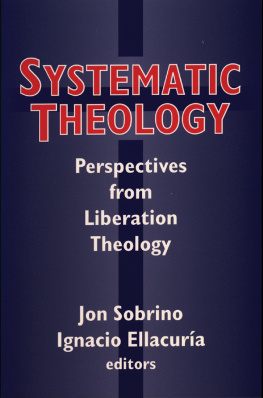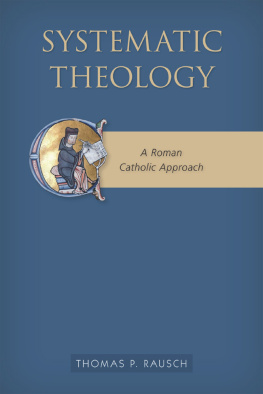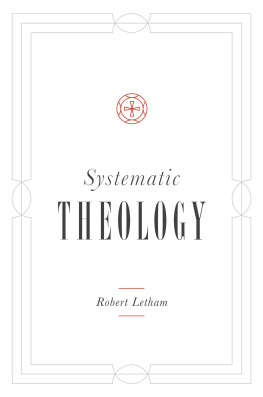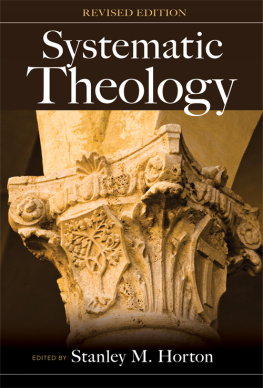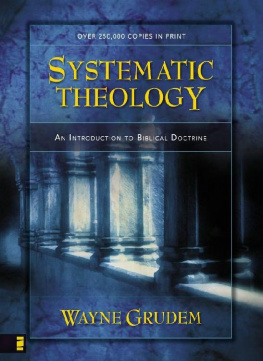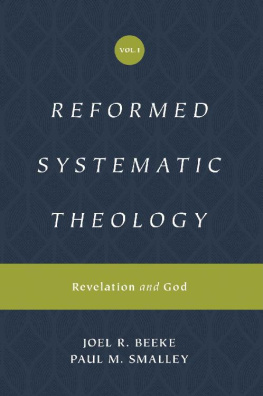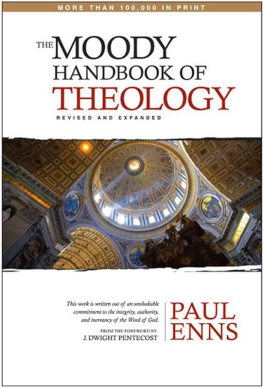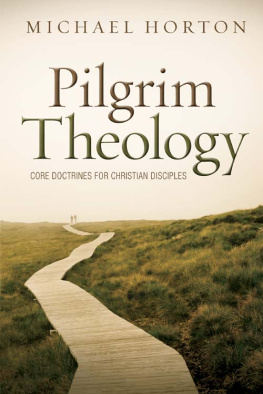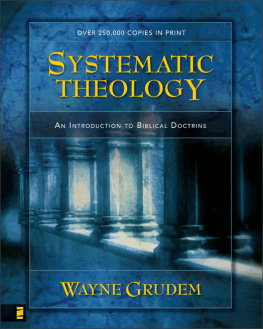The Catholic Foreign Mission Society of America (Maryknoll) recruits and trains people for overseas missionary service. Through Orbis Books, Maryknoll aims to foster the international dialogue that is essential to mission. The books published, however, reflect the opinions of their authors and are not meant to represent the official position of the society.
Copyright 1993, 1996 by Orbis Books
Published by Orbis Books, Maryknoll, NY 10545-0308
The essays included here are drawn and in some cases abridged from Mysterium Liberationis: Fundamental Concepts of Liberation Theology , edited by Ignacio Ellacura, S.J. and Jon Sobrino, S.J., copyright 1993 by Orbis Books.
Originally published in Mysterium Liberationis: Conceptos Fundamentales de la Teologa de la Liberacin 2 vols., 1990 by Editorial Trotta, S.A., Ferraz 55, 28008 Madrid, Spain.
These essays were translated with the assistance of the Department of Books and Libraries of the Spanish Ministry of Culture.
All rights reserved. No part of this publication may be reproduced or transmitted in any form or by any means, electronic or mechanical, including photocopying, recording, or any information storage or retrieval system, without prior permission in writing from the publishers.
Queries regarding rights and permissions should be addressed to: Orbis Books, P.O. Box 308, Maryknoll, NY 10545-0308.
Manufactured in the United States of America
Library of Congress Cataloging-in-Publication Data
Mysterium liberationis. English. Selections.
Systematic theology : perspectives from liberation theology : readings from Mysterium liberationis / edited by Jon Sobrino and Ignacio Ellacura.
p. cm.
Includes bibliographical references and index.
ISBN 1-57075-068-8 (alk. paper)
1. Theology, Doctrinal. 2. Liberation theology. 3. Catholic ChurchDoctrines. I. Sobrino, Jon. II. Ellacura, Ignacio.
BT78.M95213 1996
230.046dc20 95-50123
CIP
Preface
In 1993 Orbis Books published Mysterium Liberationis: Fundamental Concepts of Liberation Theology . Now the publisher has decided to make that book available to a broader audience in an abridged, paperback version. Accordingly, the editors have selected the concepts that in their judgment best express the contributions of liberation theology from a systematic viewpoint, and will have the greatest utility for the North American reader.
The editors have asked me to write a preface for this new edition. It seems to me that there could not be a better introduction to the reading of this book than a brief sketch of how it originated, along with something about the course of its successive editions. The story of its origin will indicate, in itself, what it means to do liberation theology. And the history of its various editions is appropriate because of all that has happened in recent years, both in the church and in society.
In 1987, Ignacio Ellacura and I began to plan the structure, themes, and authorship of the book. Our purpose was to gather together and develop the fundamental concepts of liberation theology. Two years later, in 1989, we had received most of the manuscripts when, on November 16, Ignacio Ellacura was murdered at the Central American University, along with his fellow Jesuits Segundo Montes, Joaqun Lpez y Lpez, Juan Ramn Moreno, Ignacio Martn Bar, Amando Lpez, and two humble women of the people, Julia Elba and her daughter Celina. They were my community and my family.
The news reached me in Thailand, and the reader can imagine the ice that gripped my heart. My mind was empty at first. Then, as I gradually came to myself, I began to think of the things I had on my hands, and among them was the book I had been preparing along with Ignacio Ellacura. To tell the truth, I did not know what was going to become of it.
Along with my inward devastation, I had some serious problems on the outside. Ignacio Ellacura and Juan Ramn Moreno could no longer submit their texts. This did not disturb me, since they had written a far more real text with their very lives. But then came the word that, after having murdered my brothers and sisters, the soldiers had destroyed a number of offices, and burned part of mine, where I kept the manuscripts. I did not know whether these documents had been spared by the fire or not. Also, about a quarter of the material had not come in yet, and the manuscripts in Portuguese had not been translated into Spanish. And I was at Santa Clara, in California, without any sure knowledge of when I should be returning to El Salvador.
I have begun with this personal recollection in order to give the reader some little idea of the vicissitudes of this book. Another reason for my choice, however, is that martyrdomhere, the martyrdom of Ignacio Ellacura, theologian, author, and co-editoris fundamental, concrete reality, and to a certain extent irreplaceable for an understanding of the content of this book. There are, in this cruel world, idols of death and antichrists who struggle with the God of life and the Christ of that God, Jesus of Nazareth. It is only from amidst oppression, carried to its maximal expression in martyrdom, that the theology of liberation can be understood. A true theology of liberation, which would attempt to take the crucified people down from the cross, in Ignacio Ellacura's words, must be prepared to share the fate of that people. This is what Ignacio Ellacura's martyrdom, better than any theological word, expresses, and that martyrdom is the best hermeneutics for understanding this book.
Despite all, the book was finished, and in 1991 it was published in Spanish both in Madrid and in San Salvador. I said in my introduction to that first edition that the finality of the book consisted in setting forth in systematized fashion the central elements of the theology of liberation, since we believe that this theology continues to be necessary and beneficial for the liberation of the poor and the Christian practice of Latin American reality. It is our conviction that liberation theology has put its finger on the sore point of realityon a wound that is spreading and becoming more inflamed, and a wound that needs to be cleansed. It is for this reason above allalong with other epistemological optionsthat liberation theology understands itself as theory of a historical and ecclesial praxis, in Ellacura's words, or in my own, intellectus amoris, misericordiae, justitiae, liberationis .
But we addedand with this we concluded our introduction to the first editionthat the reality of the Latin American continent is shot through with hope and commitment, as well, and that that reality, too, would take the floor. On the suffering, then, on the hope, and on the martyrdom of these crucified peoples, liberation theology lives. This theology seeks to give them a voice, determined as it is to struggle with injustice and the lie and to take sides with truth and familial partnership. This is what our book formulates and conceptualizes.
This was our thinking at that time with regard to the theology of liberationand this continues to be our thinking, basically, although so many things began to change with the 1990s. New criticisms of this theology have appeared. We are speaking of new criticisms. In the seventies and eighties, the old criticisms abounded, the most belligerent onesattacks, defamation, persecution. They were voiced by the powers of this world (capital, the armed forces, governments and parties, the media, the CIA, and so on), as well as by the church institution. The new criticisms no longer center on the identity of liberation theologywhether or not it is orthodox. Now the focus is on its relevance: whether it contributes anything to theology and to the liberation of peoples, especially since the fall of the communist regimes.

